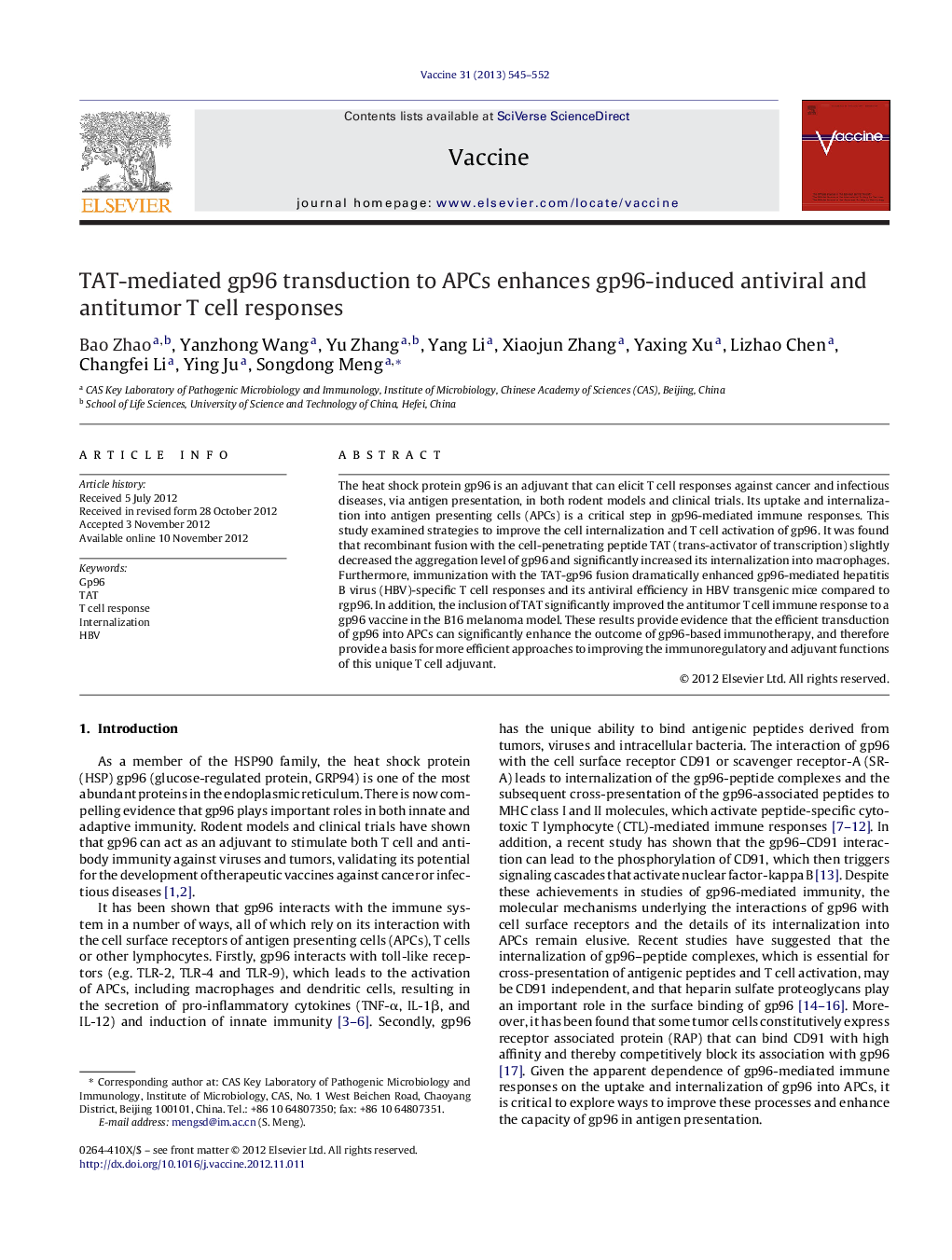| Article ID | Journal | Published Year | Pages | File Type |
|---|---|---|---|---|
| 2403387 | Vaccine | 2013 | 8 Pages |
The heat shock protein gp96 is an adjuvant that can elicit T cell responses against cancer and infectious diseases, via antigen presentation, in both rodent models and clinical trials. Its uptake and internalization into antigen presenting cells (APCs) is a critical step in gp96-mediated immune responses. This study examined strategies to improve the cell internalization and T cell activation of gp96. It was found that recombinant fusion with the cell-penetrating peptide TAT (trans-activator of transcription) slightly decreased the aggregation level of gp96 and significantly increased its internalization into macrophages. Furthermore, immunization with the TAT-gp96 fusion dramatically enhanced gp96-mediated hepatitis B virus (HBV)-specific T cell responses and its antiviral efficiency in HBV transgenic mice compared to rgp96. In addition, the inclusion of TAT significantly improved the antitumor T cell immune response to a gp96 vaccine in the B16 melanoma model. These results provide evidence that the efficient transduction of gp96 into APCs can significantly enhance the outcome of gp96-based immunotherapy, and therefore provide a basis for more efficient approaches to improving the immunoregulatory and adjuvant functions of this unique T cell adjuvant.
► We designed a more efficient approach to improve the adjuvant functions of gp96. ► The cell-penetrating peptide TAT increased gp96 internalization into macrophages. ► TAT-based gp96 delivery increased gp96-induced T cell responses. ► TAT fusion remarkably enhanced gp96-mediated antiviral efficiency. ► TAT fusion significantly enhanced gp96-mediated antitumor activity.
